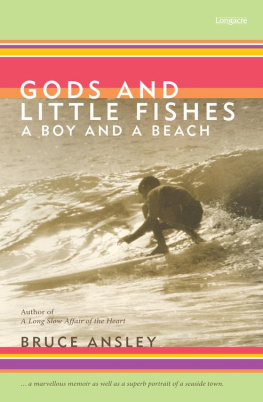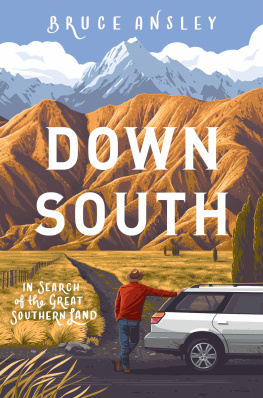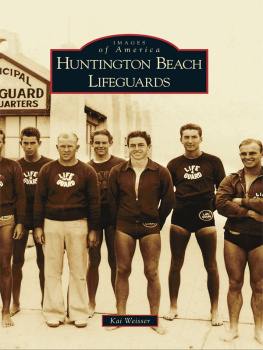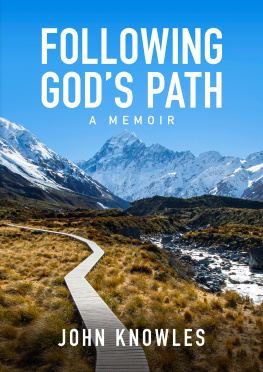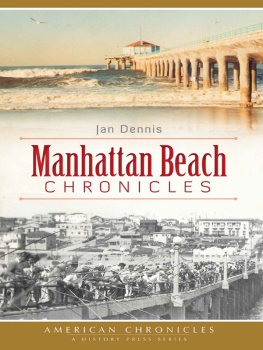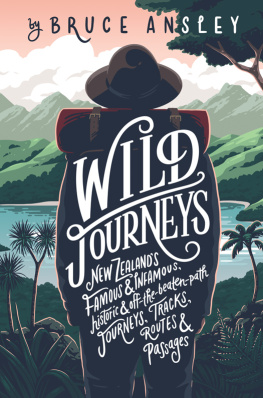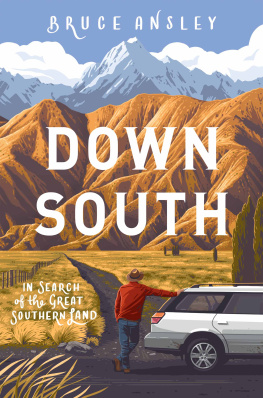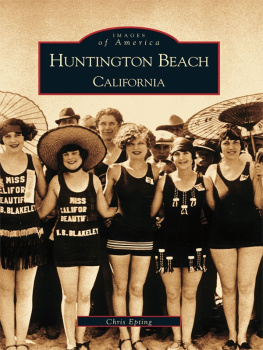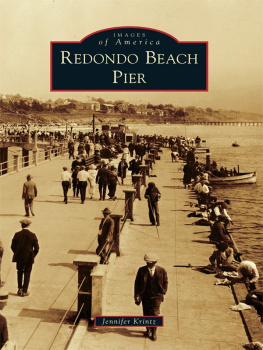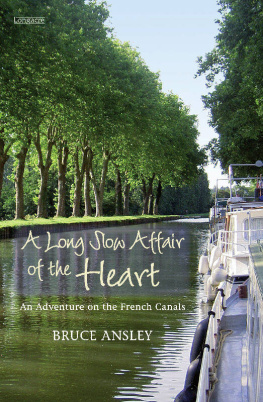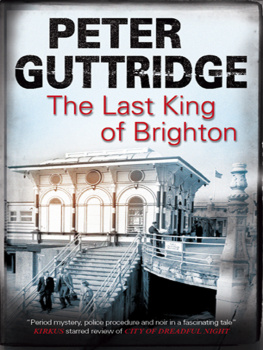W hen you walk along the pier under the huge blue sky and with clean surf on either side, you can easily think that New Brighton is the loveliest place in the world. This was once New Zealands most bustling township, however it became a parable of New Zealand when the revolution of the eighties and nineties derailed it.
New Brightons youth grew up in happy anarchy beside its great, glorious beach. In Gods and Little Fishes, Bruce Ansley gives us immediate entry into one such rich, well-lived boyhood and family life. He both captures the freedoms of a childhood many would envy now, and offers a perceptive adult sensibility charged with a partisan view.
Not only a marvellous memoir, this is also a superb portrait of a seaside town set in the second half of last century. New Brightons playing fields, the pier, the Cubs and Scouts, the main street shops, even the easterly, are given as much character as the townships old identities. The nuances of family life, the complexities of a marriage, the entanglements of small town relationships, and the very culture of the place are all conveyed with love and humour, as well as a sharp sense of what has been lost.
The sound and brilliance of the sea, the wind, the women, the shadow of a generation of men who went to war: all are described with a poetic clarity and dancing wit that will make you long to have lived the author's boyhood alongside him.
My family showed remarkable forbearance towards my writing this book. I thankmy uncle, Gordon Barlow, and my brothers Craig, Greg and Euan, and my late brother Neil. Alan Cockburn, aka Cocky, gave me a great deal of help and support throughout. Lynne Hillier and the New Brighton Heritage Museum were generous with time and archives. Pam Steele was her calm self. Emma Neales expert care and attention were indispensable.
Y ou can walk along the pier over clean surf with the big sky above and you can easily think this town might be the loveliest place in the world: a resort where palm trees bend over oiled brown flesh on the white beach, pink drinks stand handy, open cars cruise the esplanade and everyone is filled with glee because tomorrow they can look forward to, yes, another day in paradise.
I think so. Paradise may not be my middle name but New Brighton lies deep in my soul.
In my expert opinion this town is the best place in the world to live in, although I do not actually live there myself: not everyone is lucky enough to own a piece of paradise. But I can still see every bit of the place from my eyrie in the hills and I keep an eye on things in my home town.
All right, not everyone agrees with me. This is the eastern-most edge of a strange city. Unlike people in almost every other city in the world, citizens of Christchurch do not want to live beside the sea. They prefer dwelling in suburbs which grow steadily more expensive the further they are away from the sea, until they are stuffier than pillows.
And New Brighton can be a jade. The town was once Christchurchs New Zealands busiest suburb, one of only two places in the country where shops opened on Saturdays. Now, it is not.
It has always been separated from the city by more than the Avon River, the Estuary and a decent quantity of swamp and desolate suburb: people west of the river have long regarded New Brighton as inhabited by rascally aliens. They are partly right: growing up, we were a bit rascally, a little alien, compared with stolid middle-class Christchurch. Now the Garden City has sprawled towards it. The city grew fat and overlapped its belt, but it still sees New Brighton the way a weightwatcher regards flab: it knows it exists but doesnt want to go there.
At this very moment, as Im sitting on the beach with the sound of the sea in my ears, some city residents are fighting the city council, which wants to stop people living near the airport.
Forget Heathrow, Kennedy and de Gaulle; people in this city want, no demand, the right to a bad nights sleep, to the smell of kerosene and the rush of traffic; they want to live within sound of runways and the heck with the beach.
Perhaps theyre not simply contrary.
Oh-oh-Oklahoma is not the only place where the wind comes sweeping down the plains. In Christchurch the easterly is omnipresent, like punctures, and pimples.
New Brighton, out on the eastern edge, is the first place to get it. The wind is nice and cold when it arrives. It cuts strong women to the quick and slows men to a grumble. In winter it is relieved by the southerly. The southerly finds gaps in weatherboards, blows under doors, makes chimneys smoke and beds damp.
In spring both of them are swept aside by the nor westerly howling down the Southern Alps. The nor wester dumps full loads of rain on the foothills, roasts the Canterbury Plains and arrives at the coast as the hot breath of devils. Then people who have grizzled about the easterly and groaned over the southerly now complain of the heat. The heat!, they say, pumping blouses and shirts like bellows over white torsos.
Im sweating that much, marvelled my father, Hec, who ran hourly reports on his perspiration.
The nor wester is said to wreck marriages and raise the suicide rate, both allegedly proven to be known facts. It picks up sand and blasts it along the beach, stinging legs and honing them to a fine finish. Inland it hoovers the topsoil from the plains and spits it high into the yellow sky below the nor west arch framing the mountains. It will blow for a day or two more in drought times then in the sudden change that once doomed Ngi Tahu defending their Kaiapohia Pa against Te Rauparaha, it will shift to the south and send the temperature plummeting twenty degrees, gusting as ferociously as it did when it turned the fires the Ngi Tahu hoped would engulf the invaders back onto their own whares.
Winds dictate life in New Brighton. Sandwiches, when we were kids, had nothing to do with English earls. They were named for the gritty layer accompanying every transparent wafer of ham inserted between two snowy-white pieces of bread from the Besleys Bakery in Beresford Street. Eating too many sandwiches wore teeth down to their nubs and reamed the large intestine. Even hermetically sealed in the plastic tombs within Leckies cake and sandwiches shop, tomatoes wilted, eggs crumbled, and chicken thank God was yet to be invented, but the sand went on forever.
Calling favourites among winds was always controversial. The southerlies were far too cold, the nor westerlies much too hot. The easterlies could shave the hair right off your chest. We knew it because our dad told us so. Thats why you havent got any, he said.
Occasionally not often the wind did not blow at all and the Magic Mountain, which appears only on warm, perfect days, rose from the sea far to the north, its peak glinting like a prize. On those days my mother Jess would vow to rush out and buy a ticket in a mysterious event called the Art Union. None of her children were quite certain what that was. We thought it might be something like Gods bus, for it promised to carry her off to heaven, forthwith. She defined heaven as somewhere away from New Brighton.
When I win the Art Union, shed say, eyeing a new house/trip to Australia/inside toilet. We might have wondered about Gods bus, but we knew one thing for certain: it always missed her stop.

